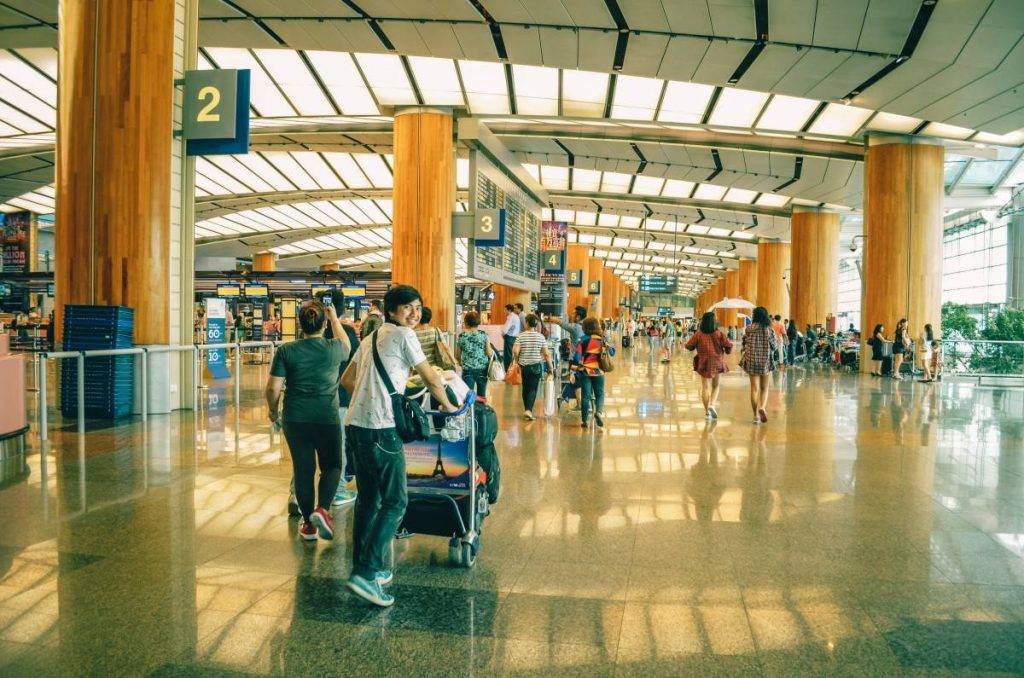Welcome to Medical Channel Asia’s regular segment, the weekly Asian medical news bulletin. Each week, we will bring you essential medical news from within the region to keep you informed about the healthcare industry.
This week, we will look at new health centres in the Philippines, the removal of COVID-19 measures in Singapore and the air pollution and hospital crisis in Thailand and Malaysia respectively.
Philippines
The Philippines is set to build 19 “super health centers” (SHCs) in Cebu, the first to be located in Barangay Lagtang, Talisay City. The facilities will offer basic medical services, including database management, out-patient, birthing, isolation, diagnostic (laboratory: x-ray, ultrasound), pharmacy, and an ambulatory surgical unit. Additional services such as eye, ear, nose, and throat (EENT) service, oncology centres, physical therapy and rehabilitation centre, and telemedicine will also be available.
Child rights organization Save the Children has called on the Philippine government to urgently invest in mental health services to address a mental health crisis in the country. The call came after the Department of Education reported that 404 students had died by suicide and 2,147 had attempted suicide during the 2021-2022 academic year. Save the Children Philippines CEO Atty. Alberto Muyot urged the government to increase the availability and accessibility of mental health support, mainstream mental health services into primary care, and develop school-based mental health programs to help students cope with the impact of the COVID-19 pandemic and other issues.
Singapore
Effective from February 13, the Singaporean government announced that it would step down the remaining COVID-19 measures and establish an endemic COVID-19 new norm. The government will also remove community measures such as mask-wearing on public transport and indoor healthcare and residential care settings, except for visitors, staff, and patients in healthcare and residential care settings where there is interaction with patients and indoor patient-facing areas. Private enterprises may opt to maintain mask-wearing requirements for workplace health and safety or business continuity reasons. The government encourages members of the public, especially the elderly and immunocompromised, to wear masks in crowded places or when visiting or interacting with vulnerable persons, and individuals who are unwell with symptoms of COVID-19 or other respiratory infections to wear a mask when they need to leave their homes.
Thailand
This article dives into the air pollution that plagued Thailand in the past few weeks, and the causes behind it. In 2021, pollution was responsible for over 29,000 deaths and the average Thai resident was exposed to four times the safe amount of the pollutant particulate matter 2.5. While the government has established 66 clinics for pollution-related health issues, experts say far more is needed to save people’s health, including stronger enforcement of environmental policies, greater awareness raising of pollution-related health threats, and reforms to vehicle tax policy that discourage the use of diesel-powered cars. There are also calls for incentives for farmers to adopt sustainable practices and the creation of a more robust and dedicated agency to tackle air pollution. A group of NGOs, including Greenpeace Thailand and the Environmental Law Foundation, has also begun pursuing a lawsuit against the government for failure to provide citizens with their right to clean air.
Malaysia
The Malaysian Ministry of Health will propose the establishment of a health commission to Parliament to enable the ministry to recruit medical officers. Health director-general Dr Noor Hisham Abdullah said the proposal is one of the recommendations of a white paper on health services and aims to resolve the issues of contract doctors and permanent positions. The current hiring process of medical officers is under the Public Services Department and Finance Ministry, which creates a waiting period for vacancies to open up. The ministry proposed offering contracts to reduce waiting periods and hire more medical officers. There are currently over 23,000 contract doctors in government service, with 2,000 to 3,000 new graduates joining the health and medical services each year. In the same statement, Dr Noor Hisham also urged doctors and nurses not to compromise patients’ safety in the event of a strike over dissatisfaction with work conditions. Public healthcare workers are overstretched as a potential strike looms over this crisis.
Vietnam
Medical experts in Vietnam are recommending the vaccination of pets and administering rabies vaccine immediately after being bitten by animals to prevent the spread of the disease. In January 2023, many people in different localities in Vietnam have been going to medical facilities to get vaccinated against rabies, especially during the Lunar New Year holiday. While there has been an increase in the number of rabies vaccines given to patients, Vietnam still records 70-100 deaths from rabies each year, and unvaccinated and free-roaming dogs remain a dangerous threat in many places. The government’s goal is to achieve zero deaths from rabies by 2030, and the Department of Preventive Medicine under the Ministry of Health recommends that people should fully vaccinate their pets and avoid playing with or teasing dogs or cats. People who are bitten, scratched, or licked by animals should wash the wound with soap and water, apply antiseptic lotion, and immediately go to the nearest medical centre for timely rabies vaccination.
Indonesia
The Ministry of Health and the Education Fund Management Institution (LPDP) have increased the scholarship quota for medical specialists in Indonesia to address the lack of medical specialists in the country. The quota for 2023 has been increased to 1,600 recipients, up from 600 recipients last year, and is intended for doctors, dentists, subspecialists, fellowships, and other health human resources. The dearth of medical specialists in the country has caused long patient queues and difficulty in distributing doctors to various regions. The ministry aims to increase the number of medical specialists produced and distribute them across all districts and cities in Indonesia by updating the system. The scholarship is expected to expedite the fulfilment of the number of health workers, specifically medical specialists, across the country.

